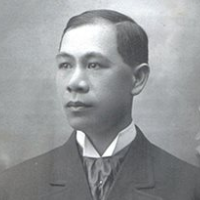Chinese Immigrant Granted Law License—88 Years After Death
 Hong Yen Chang
Hong Yen Chang
California has long been a leader among states in influencing the direction taken by the federal government on a wide range of issues—most recently on the environment, food safety and climate control, to name a few.
In 1879, it was immigration. An enthusiastic state convention rewrote the Constitution and banned “any native of China” from voting, joining an exclusionary list that included any “idiot, insane person, or person convicted” of certain crimes. It forbid government and corporations from hiring them and directed the Legislature to figure out ways to get rid of them.
Lawmakers and the state Supreme Court responded with like enthusiasm, creating an array of racist barriers and inspiring the federal Chinese Exclusion Act of 1882, which forbid them citizenship and severely limited immigration.
So when Hong Yen Chang, graduate of Yale and Columbia law school and approved by the New York state bar, moved to San Francisco and applied for similar recognition by the legal community in 1890, the Supreme Court rejected his bid. California had a rule that only citizens, or people on the path to citizenship, could practice before the Bar, and there was no chance Chang would become one.
Now, the court has had a public change of mind.
In a unanimous decision, the state justices granted Chang posthumous admission to the Bar. It is the court’s first such posthumous declaration. The ruling is an eight-page apology for the sentiments and actions of the state—and the subsequent failure to put it right for 125 years—that denied Chang admission:
“It denied Chang equal protection of the laws. . . . It was also a blow to countless others who, like Chang, aspired to become a lawyer only to have their dream deferred on account of their race, alienage, or nationality. And it was a loss to our communities and to society as a whole, which denied itself the full talents of its people and the important benefits of a diverse legal profession.”
The court said it was time to have “a candid reckoning with a sordid chapter of our state and national history” and “past time” to fix it. That is a case, perhaps, easier to make to a court with three Asian-Americans, two other women and a Latino than seven white males.
Congress didn’t get around to repealing the Chinese Exclusion Act until 1943. Nine years later, California got rid of the racist Chinese stuff in its Constitution. And last year, the Legislature passed a resolution acknowledging the state “set the precedent for racist foreign and national policy that led to broader exclusion laws and fostered an environment of racism that quickly led to the Jim Crow laws of the 1880s.”
But it’s questionable that the wrong against Chang would have been righted anytime soon, if ever, without the efforts of his descendants and the Asian Pacific American Law Students Association at the University of California, Davis School of Law.
Chang was born in China and came to the United States when he was 12 as part of the Chinese Educational Mission. The program was designed to teach Chinese kids about Western culture and by all measures Chang thrived. He attended Hartford Public High School in Connecticut and then the exclusive Phillips Academy in Andover, Massachusetts.
After graduation, Chang went to Yale. But China cancelled the mission in 1881 and he was forced to return home. He returned a few years later and graduated from law school at Columbia College in 1886.
After being denied a license in California, Chang worked for the Chinese Consulate and the Yokohama Specie Bank of Japan in San Francisco. He returned to China in 1907, where he carved out a career as an educator, banker and diplomat. He died in Berkeley in 1926.
–Ken Broder
To Learn More:
Chinese Immigrant Denied California Law License Gets One 125 Years After Death in Berkeley (by Howard Mintz, San Jose Mercury News)
125 Years Late, Chinese Lawyer Earns Right to Practice Law in California (by Denny Walsh, Sacramento Bee)
California Grants Posthumous Law License to Nation's First Chinese-Born Lawyer (by Eric M. Johnson, Reuters)
Chinese Immigrant, Denied Law License in 1890, Gets One Posthumously (by Maura Dolan, Los Angeles Times)
UC Davis Law Students Want Chinese Attorney Admitted to Bar 124 Years after His Death (by Ken Broder, AllGov California)
- Top Stories
- Controversies
- Where is the Money Going?
- California and the Nation
- Appointments and Resignations
- Unusual News
- Latest News
- California Forbids U.S. Immigration Agents from Pretending to be Police
- California Lawmakers Urged to Strip “Self-Dealing” Tax Board of Its Duties
- Big Oil’s Grip on California
- Santa Cruz Police See Homeland Security Betrayal in Use of Gang Roundup as Cover for Immigration Raid
- Oil Companies Face Deadline to Stop Polluting California Groundwater





